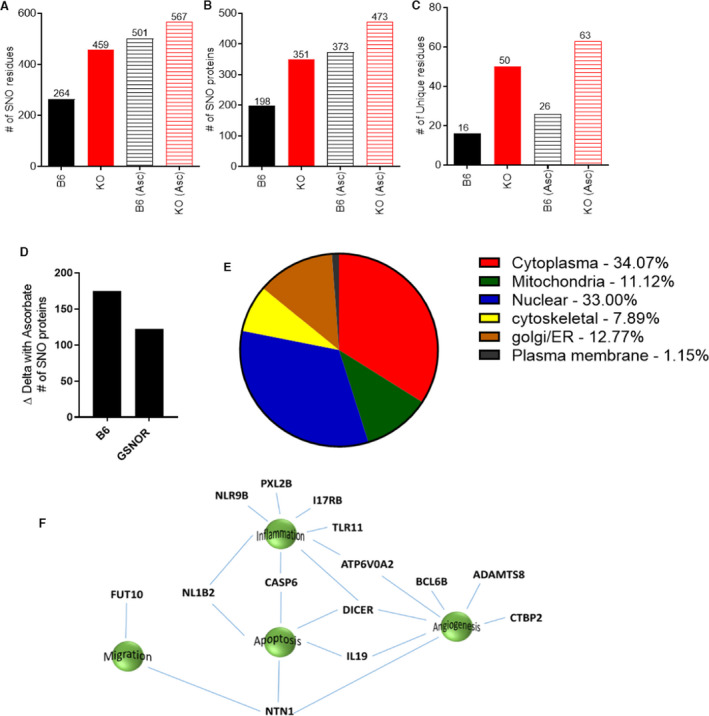Figure 5. Duel‐labeling mass spectrometry revealed an increased number of SNOylated proteins in the placentas from GSNOR−⁄− animals.

A and B, An increased number of S‐nitrosylated proteins were detected in the placentas of the knockout (KO) animals, and of these there were more unique S‐nitrosylated residues (C) in GSNOR−⁄− placentas as compared with controls. Ascorbate treatment increased S‐nitrosylated proteins in both groups, but this increase was less in the KO group as compared with control (D). E, The majority of the nitrosylated proteins were detected in the cytoplasm and in the nucleus in the 4 different groups analyzed. F, Schematic showing proteins unique in GSNOR−⁄− placentas but absent in the B6 placentas, and B6‐ and GSNOR−⁄− placentas treated with ascorbate. ADAMTS8 indicates A disintegrin and metalloproteinase with thrombospondin motifs 8; ATP6V0A2, V‐type proton ATPase 116 kDa subunit a isoform 2; BCL6B, B‐cell CLL/lymphoma 6 member B protein; CASP6, Caspase‐6 (CASP‐6); CASP6, Caspase‐6; CTBP2, C‐terminal‐binding protein 2; DICER, Endoribonuclease Dicer; FUT10, Alpha‐(1,3)‐fucosyltransferase 10; IL17RB, IL‐17 receptor B; IL‐19, interleukin‐19; NL1B2, NACHT, LRR and PYD domains‐containing protein 1b allele 2; NLR9B, NACHT, LRR and PYD domains‐containing protein 9B; NTN1, Netrin‐1; PXL2B, Prostamide/prostaglandin F; and TLR11, Toll‐like receptor 11.
